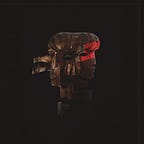In the time before time, when the earth was but a whisper in the vast expanse of the cosmos, the Anunnaki, ancient and powerful beings from the distant planet Nibiru, descended upon the fertile lands of Mesopotamia. The air crackled with their presence, and the very ground trembled as their mighty ships settled upon the soil.
Enki, the wise and cunning, led them, his eyes gleaming with the promise of knowledge and dominion. He saw the potential in the untamed world below and envisioned a grand design that would span millennia. By his side was Enlil, his stern and uncompromising brother, whose heart was as cold and unyielding as the iron of his sword. Between them lay a tension as old as the stars, a struggle for power and purpose that would shape the fate of both gods and men.
The Anunnaki, seeing the wild and unrefined humans, recognized their opportunity. They descended from their celestial heights and took it upon themselves to shape these primitive beings. Enki, with his gentle hand, molded them, granting the gift of intelligence and the spark of civilization. He taught them the secrets of agriculture, writing, and architecture. The great ziggurats rose to the heavens, and the rivers of Tigris and Euphrates brimmed with life.
But Enlil, ever wary of the growing numbers and ambitions of these new creations, sought to keep them in check. He demanded tribute and loyalty, his rule enforced by fear and strength. His decree was law, and his wrath, swift. As time marched on, the rift between Enki and Enlil widened, their followers divided in allegiance and purpose.
The earth, now a vibrant testament to the Anunnaki's influence, became a chessboard for the divine brothers’ conflict. Enki’s champions, the bearers of knowledge and progress, clashed with Enlil’s enforcers, the keepers of order and tradition. Mortals, caught in the web of godly politics, often found themselves pawns in a game far beyond their understanding.
Amidst the turmoil, tales of love and betrayal flourished. Enki’s secret dalliances with human women gave rise to demigods, beings of immense power and tragic fate. Kings and queens, heroes and villains, their destinies entwined with the whims of their celestial patrons. Inanna, the fierce and beautiful, danced through the courts of men, her affections and ambitions igniting wars and forging empires.
But the Anunnaki's grand design bore a fatal flaw. The very advancements they bestowed upon humanity sowed the seeds of rebellion. As human kingdoms flourished, so did their desire for autonomy. Murmurs of dissent grew into cries for freedom, and the gods found their creations slipping from their grasp. The balance of power, once so firmly in the hands of the Anunnaki, began to tilt.
In a final bid to reclaim control, Enlil unleashed a cataclysmic deluge, a great flood to cleanse the earth of its rebellious children. Yet, Enki, ever the protector of humanity, defied his brother and whispered warnings to the wisest of men, ensuring that life would endure the wrath of the storm.
The floodwaters receded, leaving a scarred yet resilient world. The Anunnaki, their numbers dwindling and influence waning, retreated to the shadows of myth and legend. Their great works stood as silent testaments to their time upon the earth, and the human race, now masters of their destiny, began to forge a future free from divine manipulation.
As centuries turned to millennia, the stories of the Anunnaki faded into the tapestry of history. Yet, their legacy endured, woven into the fabric of human civilization. Temples crumbled, names were forgotten, but the gifts of knowledge and the spirit of defiance they instilled in humanity persisted.
In the end, the Anunnaki became but a whisper in the winds of time, a reminder of an age when gods walked among men, and the earth was shaped by the hands of celestial beings. Their story, like all great tales, lived on in the hearts of those who dared to dream, to rebel, and to carve their path under the watchful gaze of the stars.
